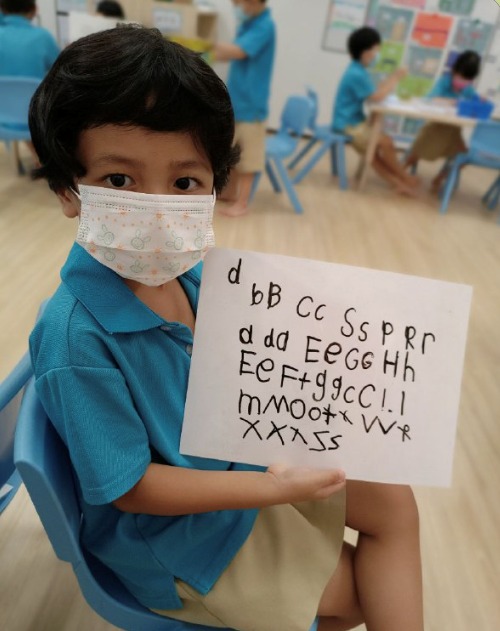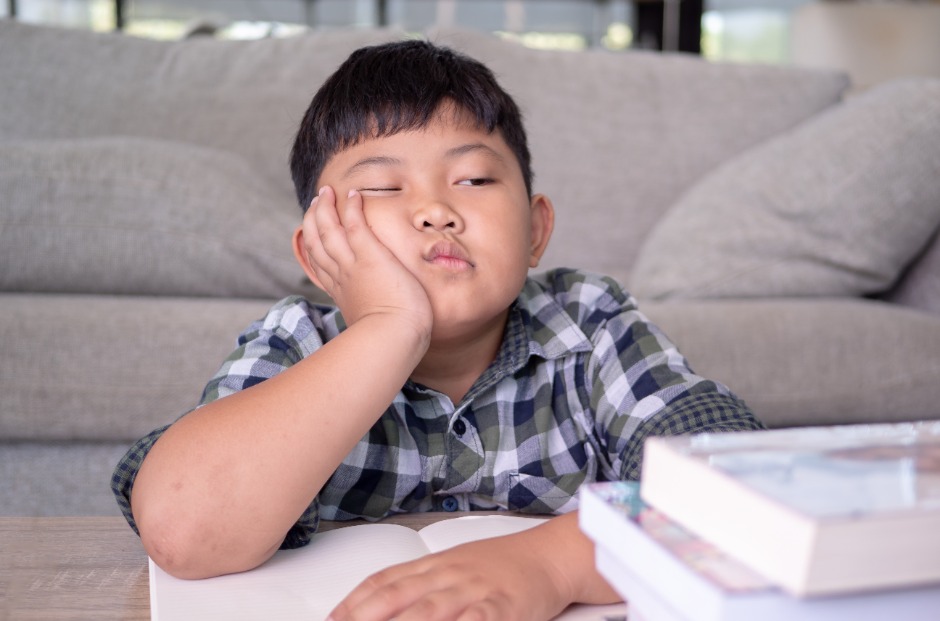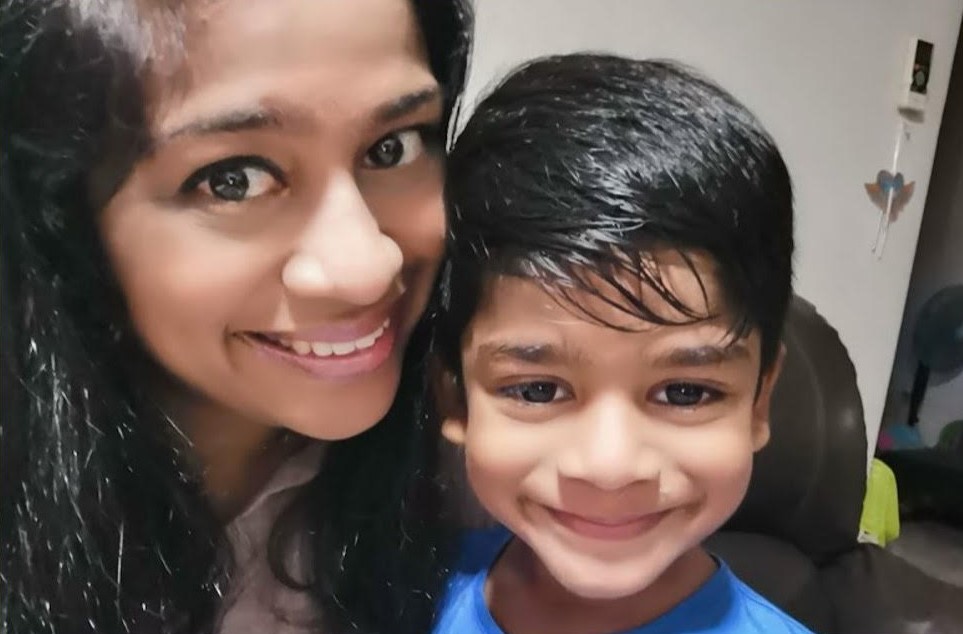Getting Immersed in Primary School Life
10 Jan 2013

At Yumin Primary School, lower primary school children showed their K2 guests how to buy food at the canteen.
Entering primary school is a big step in a child’s life, and one that may be daunting. At PAP Community Foundation (PCF) Tampines East, to help its pupils prepare for this new phase, they are given a glimpse of primary school when they are in Kindergarten 2 (K2). Since 2004, these K2 pupils have had the opportunity to experience school life at Chongzheng Primary School and Yumin Primary School.
Mr Benny Yeo, General Manager of PCF Tampines East, points out, “It is very important for the K2 children to have a taste of the transition to primary school, where the environment, space and activities are different from what they are used to at kindergarten.” For the children, the immersion programme at the primary schools not only helped to assuage some of their fears – they also enjoyed themselves immensely and saw what they could look forward to.
Getting used to a new environment
The immersion programme is organised by the primary schools and typically include classroom activities, art, music, and PE sessions, touring the school facilities, and learning to navigate the canteen. The programme is thoughtfully designed to address the main differences between pre-school and primary school which are potentially challenging for children to adapt to. These include bigger class sizes, bigger school premises, different physical and social environments, more subjects, longer school hours, and having to buy food at the canteen.
Mdm Hazel Tan, the teacher in charge of pastoral care at Yumin Primary School, said, “The classroom activities were planned to give the K2 pupils a glimpse of Pri 1 lessons. This will help the pupils to see that school can be fun, with hands-on activities and engaging learning.” Indeed, three months after their visit to the primary schools, when the K2 pupils were asked what they enjoyed about the classroom activities, several enthusiastic hands shot up. “My buddies and I made a mask, and we all liked it!” said Michael Ike Chukwuebaka. Sharma Tanush chimed in, “I like the classrooms because there are storybooks there.” Eqbal Erfan B. Elyadi recalled, “I enjoyed colouring the mask in class.”

Some of the immersion programme activities at Yumin Primary School, such as colouring, were meant to ease K2 pupils into the new environment.
Unlike in pre-school, children in primary school need to choose what to eat and buy their own food from the stallholders. Muslim students are also taught how to identify foodstalls which sell halal food.
Ms Rachel Poh, the teacher in charge of the immersion programme at Chongzheng Primary School, shared, “Recognising that some students may see buying food from the canteen as challenging, we try our best to arrange for them to have this experience during the immersion programme. We hope that this arrangement will motivate the pupils with some knowledge and experience of what the daily life of a primary school is.”
The children were exuberant about the canteen experience. Phua Le Min highlighted it as her favourite part of the programme. “It was the first time I bought food for myself,” she said proudly. “I bought roti prata. I liked it.” Ahmad Fawwaz B. Jamaludin concurred that he liked the canteen food and Brasen Mavis Vinarao Sayson added, “I had macaroni soup. The food will make me strong.”
Parents also have an important role to play to help their children’s transition to Pri 1. Hence, the programme includes introducing the parents to schools’ key programmes and showing them around the school. Mrs Elaine Quek, principal of Chongzheng Primary School, explained, “By helping the K2 pupils as well as their parents to experience a day in the life of a primary school, we hope they will be more aware of what they can expect and look forward to. Strong parental involvement will pave the way to a child’s better adjustment and progress in school.”
Making friends
Getting to know new people in primary school plays a big part in helping children adapt to the new environment. For example, Nurul Iman Puteri Md Johari is looking forward to primary school because her sister, brother and three cousins are already attending the same school. Nonetheless, for children who do not already know anyone in primary school, the friendly and warm older children they met during the immersion programme went a long way towards putting them at ease.
Mrs Daisy Soh, principal of PCF at Blk 385 Tampines Street 32, noted fondly, “At the canteen, some of our children treated their primary school guides to drinks!” The feeling must have been mutual, as some of the primary school pupils did the same for their young charges. Both primary schools also felt that the sessions were beneficial to their pupils, giving them opportunities to hone their leadership skills, and show care and concern for others.
While the half-day immersion programmes may not dispel all the fears that the children may have about primary school, it has certainly shown them what they can look forward to. The “big” spaces in primary school may be initially overwhelming, but as Brassen pointed out, “The school hall is very big! Very fun exercising together in there.” Syed Mohib Baza Naqvi also recounted a memorable experience in the “big” space, “We raised the Singapore flag, and celebrated National Day.”
When asked if they were scared of going to primary school, many of the K2s roundly said “Yes!”, then after a few short moments of deliberation and discussion, chorused “No!” Their response to the final question as to whether they were looking forward to primary school? A resounding and unanimous “yes”.



.jpg)
.jpg)

